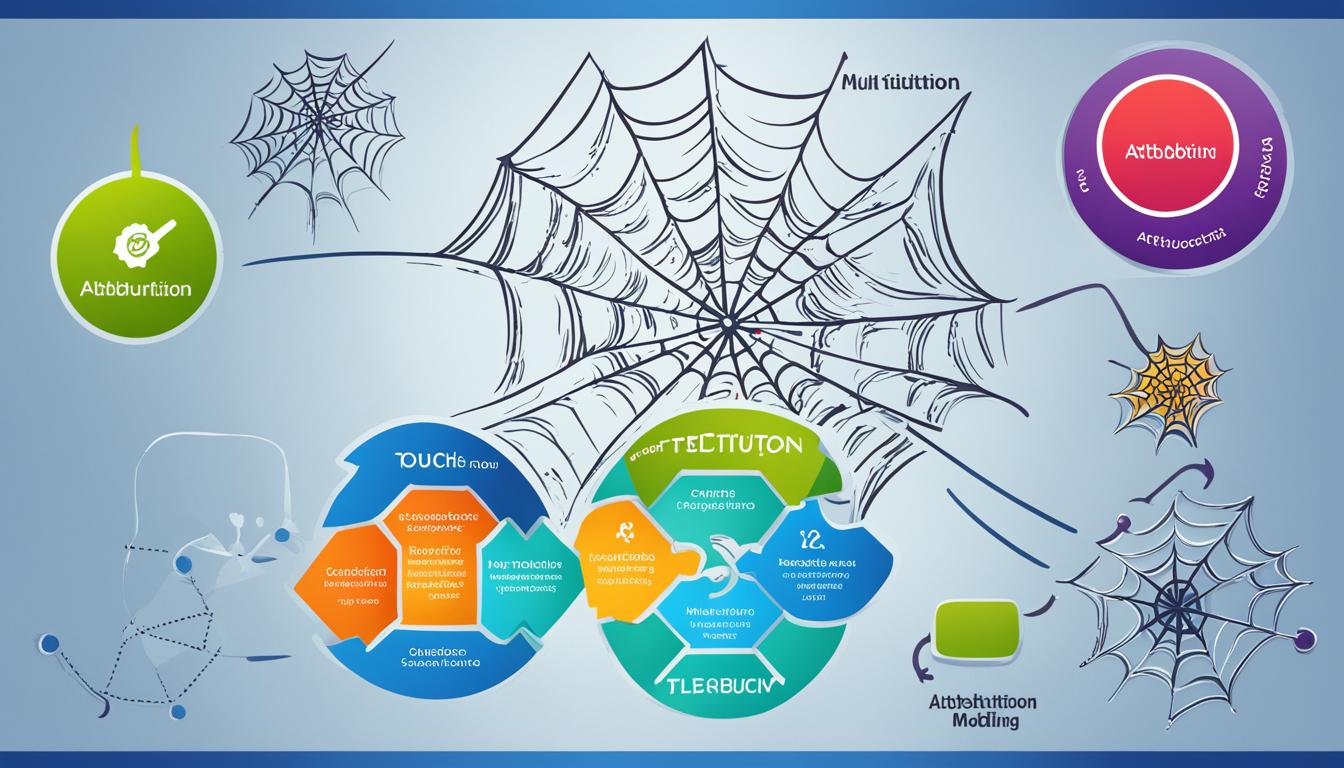A marketing executive plays a crucial role in driving a company’s marketing efforts and promoting its products or services. With a deep understanding of the company’s product line, potential market, media costs, and budgeting issues, marketing executives utilize various advertising channels and strategies to reach their target audience effectively.
By analyzing demographics, sales figures, and competition, marketing executives develop creative and data-driven marketing strategies that highlight a product’s unique selling points. They work closely with developers, advertisers, and production managers to ensure successful promotions and maximize the product’s visibility and market reach.
Marketing executives are responsible for coordinating various promotional activities, managing multimedia content, writing creative copy, maintaining websites, analyzing data analytics, monitoring budgets, and overseeing social media campaigns. Their role requires excellent communication skills, attention to detail, creativity, and strong organizational abilities to execute successful marketing initiatives.
As marketing executives contribute to the development of marketing strategies, negotiate advertising contracts, and ensure brand compliance, their expertise and leadership contribute to the overall success of a company’s marketing efforts.
Key Takeaways:
- A marketing executive directs a company’s marketing efforts and plays a vital role in promoting its products or services.
- They develop creative and data-driven marketing strategies to reach the target audience effectively.
- Marketing executives coordinate promotional activities, manage multimedia content, and oversee social media campaigns.
- Excellent communication skills, attention to detail, creativity, and strong organizational abilities are essential qualities for marketing executives.
- Marketing executives contribute to the development of marketing strategies, negotiate advertising contracts, and ensure brand compliance.
Key Responsibilities of a Marketing Executive
A marketing executive plays a crucial role in driving the success of a company’s marketing efforts. They are responsible for a wide range of tasks and have diverse responsibilities within their role. Some of the key responsibilities of a marketing executive include:
- Contributing ideas to marketing campaigns
- Conducting research and data analysis
- Coordinating promotional activities
- Managing multimedia content
- Writing and proofreading creative copy
- Maintaining websites
- Tracking data analytics
- Updating databases
- Monitoring budgets
- Managing social media campaigns
- Monitoring the performance of marketing campaigns
In addition to these tasks, marketing executives also play a key role in the development of marketing strategies. They work on negotiating advertising contracts and ensuring brand compliance across all marketing channels. The role requires excellent communication skills, attention to detail, creativity, and strong organizational and planning abilities to successfully execute these responsibilities.
Marketing executives are pivotal in driving effective marketing campaigns and maximizing the impact of a company’s marketing efforts.
Qualifications and Training for Marketing Executives
While there are no formal educational requirements for marketing executives, most employers prefer candidates with a college degree. Courses in marketing, statistics, advertising, psychology, sociology, business, finance, economics, and history are valued. Communication skills and writing experience are important, and specific industries may have additional requirements. Professional education and certifications from organizations such as the American Marketing Association and Marketing Executives International can be beneficial but are not mandatory. Additionally, gaining relevant work experience and attending seminars or lectures can enhance a marketing executive’s qualifications.
| Qualifications | Education | Training |
|---|---|---|
| College degree (preferred) | Courses in marketing, statistics, advertising, psychology, sociology, business, finance, economics, and history | Professional education and certifications from organizations like the American Marketing Association and Marketing Executives International |
| Communication skills | Gaining relevant work experience and attending seminars or lectures |
Present and Future of Marketing Executives
The role of marketing executives has become essential in today’s consumer-driven market. As companies strive to increase their profitability and market position, the demand for skilled marketing professionals is expected to grow. Many current marketers are reaching retirement age, creating opportunities for new talent. However, competition for these positions is also expected to intensify. Candidates with higher academic credentials and those who engage in continuing education are likely to have an advantage in this competitive industry. The future of marketing executives is promising, with potential for career growth and job security.
| Key Trends | Impact |
|---|---|
| 1. Digital Transformation | Marketing executives need to adapt to rapidly evolving digital platforms and technologies to effectively reach target audiences and drive business growth. |
| 2. Data-driven Decision Making | The ability to analyze and interpret data has become crucial for marketing executives, as it enables them to make informed decisions and optimize marketing strategies. |
| 3. Personalization and Customer Experience | Marketing executives must focus on creating personalized experiences for customers, utilizing data and technology to deliver targeted messaging and enhance customer satisfaction. |
| 4. Social Media and Influencer Marketing | Social media platforms have emerged as powerful marketing channels, and marketing executives must harness their potential to engage and connect with consumers effectively. |
| 5. Sustainability and Corporate Social Responsibility | Consumers increasingly prioritize brands that demonstrate social and environmental responsibility. Marketing executives play a vital role in communicating a company’s sustainability efforts and values. |
Work Environment and Career Progression for Marketing Executives
The work environment for marketing executives can vary depending on the organization and industry. Marketing executives work in diverse settings, ranging from large corporations to startups and advertising agencies. They may be part of a dedicated marketing team or collaborate with other departments, such as sales, product development, and creative teams.
Entry-level positions for marketing executives often involve more practical tasks, such as market research, data analysis, and content creation. As they gain experience and demonstrate their skills, marketing executives can progress to higher-level positions within the organization.
Career progression for marketing executives is driven by various factors, including experience, education, and performance. Advancement opportunities may include leading marketing teams, managing large-scale campaigns, or taking on strategic roles that involve planning and executing complex marketing initiatives.
To navigate their career progression successfully, marketing executives should consider pursuing graduate degrees or specialized certifications in marketing, finance, or advertising. These additional qualifications can enhance their knowledge and expertise, opening doors to more senior positions and higher salaries.
In addition to formal education, developing strong leadership skills is crucial for career advancement. Marketing executives who can effectively strategize, lead teams, and collaborate with other departments are highly sought after in the industry.
As marketing executives progress in their careers, they may experience increased job satisfaction. With higher-level positions often come more flexible working hours, greater autonomy, and a higher salary range.
Marketing Executive Career Progression and Salary Range
| Level | Job Title | Career Progression | Salary Range |
|---|---|---|---|
| 1 | Marketing Assistant | Entry-level position | $27,000 – $40,000 |
| 2 | Marketing Executive | Executing marketing campaigns, coordinating promotional activities | $40,000 – $70,000 |
| 3 | Marketing Manager | Leading marketing teams, strategic planning | $70,000 – $110,000 |
| 4 | Marketing Director | Overseeing marketing department, shaping marketing strategies | $110,000 – $150,000 |
| 5 | Chief Marketing Officer (CMO) | Executive-level position, overall marketing leadership | $150,000 – $830,000+ |
Please note that the salary range provided is a general estimation and can vary based on factors such as location, company size, industry, and individual qualifications.
Overall, marketing executives can enjoy a dynamic work environment where they have the opportunity to contribute to the success of a company’s marketing efforts. With career progression, marketing executives can shape their own path, taking on more influential roles and enjoying increased job satisfaction.
What Does a Marketing Executive Do on a Day-to-Day Basis?
Marketing executives play a crucial role in the success of a company’s marketing efforts. On a day-to-day basis, they engage in various tasks that contribute to the achievement of marketing goals and objectives. These tasks include:
- Contributing ideas to marketing campaigns: Marketing executives brainstorm and provide creative inputs for the development of effective marketing campaigns.
- Conducting research and data analysis: They conduct market research and analyze data to identify target audiences, market trends, and consumer preferences.
- Coordinating promotional activities and events: Marketing executives work closely with different teams to plan and organize promotional activities, events, and product launches.
- Managing multimedia content: They oversee the creation and distribution of multimedia content across various marketing channels, such as websites, social media platforms, and email campaigns.
- Writing and proofreading copy: Marketing executives are responsible for creating engaging and persuasive copy for advertisements, marketing materials, and online content.
- Maintaining websites: They ensure that company websites are up-to-date, visually appealing, and user-friendly.
- Tracking data analytics: Marketing executives monitor and analyze data related to marketing campaigns, website traffic, social media engagements, and other relevant metrics to evaluate performance and make data-driven decisions.
- Updating databases: They maintain and update customer databases, ensuring accurate and up-to-date information for targeted marketing initiatives.
- Monitoring budgets: Marketing executives manage marketing budgets, track expenses, and ensure cost-effective allocation of resources.
- Managing social media campaigns: They strategize and execute social media campaigns, monitor engagement, respond to customer inquiries, and analyze social media metrics.
- Evaluating the performance of marketing campaigns: Marketing executives review the performance of marketing campaigns, assess the ROI (Return on Investment), and make necessary adjustments to optimize results.
- Collaborating with other departments and stakeholders: They work closely with cross-functional teams, such as sales, product development, and creative departments, to ensure alignment and successful execution of marketing strategies.
Efficiently Managing Day-to-Day Responsibilities
To efficiently manage these day-to-day responsibilities, marketing executives must have strong organizational skills, attention to detail, and the ability to prioritize tasks effectively. They should be adept at multitasking and possess excellent communication and interpersonal skills to work collaboratively with diverse teams. Additionally, staying updated with the latest industry trends and emerging marketing techniques is crucial for continued success in the rapidly evolving marketing landscape.
Skills and Qualities of a Successful Marketing Executive
Successful marketing executives possess a combination of technical and soft skills that enable them to excel in their roles. These skills and qualities are crucial for effectively strategizing, implementing, and managing successful marketing campaigns. Here are the key skills and qualities that every marketing executive should possess:
Analytical Abilities
Marketing executives should have strong analytical abilities to interpret data, conduct market research, and identify trends in consumer behavior. This enables them to make informed decisions and develop effective marketing strategies that drive results.
Market Research Skills
Being skilled in market research allows marketing executives to gain valuable insights into their target audience, competition, and industry trends. This knowledge helps in identifying market opportunities, understanding consumer needs, and developing targeted marketing initiatives.
Digital Marketing Methods
In today’s digital landscape, it is essential for marketing executives to have a solid understanding of digital marketing methods. This includes knowledge of search engine optimization (SEO), social media marketing, content marketing, email marketing, and other digital channels. Being up-to-date with the latest digital marketing trends and strategies is crucial for success.
Proficiency in Social Media Management
Social media has become a vital marketing tool, and marketing executives must have a strong grasp of social media management. This includes developing effective social media strategies, creating engaging content, monitoring social media analytics, and staying updated on social media trends.
Familiarity with Data Analytics
Data analytics plays a crucial role in measuring the success of marketing campaigns and optimizing strategies. Marketing executives should be familiar with data analytics tools and techniques to track key performance indicators (KPIs), analyze campaign data, and make data-driven decisions.
Excellent Communication and Presentation Skills
Effective communication and presentation skills are essential for marketing executives to convey marketing strategies, engage with stakeholders, and communicate effectively with team members. Clear and concise communication ensures that marketing initiatives and goals are understood by all parties involved.
Strong Teamwork and Collaboration Abilities
Marketing executives often collaborate with cross-functional teams and stakeholders, requiring strong teamwork and collaboration skills. They should be able to work effectively with colleagues from different departments and integrate their expertise in marketing campaigns.
Adaptability and Multitasking Skills
The marketing landscape is dynamic and fast-paced, requiring marketing executives to be adaptable and skilled at multitasking. They must navigate changing trends, meet deadlines, and manage multiple projects simultaneously while maintaining a high level of attention to detail.
Attention to Detail and Creativity
Attention to detail is crucial in marketing, as every aspect of a campaign can impact its success. Marketing executives should have an eye for detail to ensure accuracy in all marketing materials. Additionally, creativity is essential for developing innovative and attention-grabbing marketing campaigns that stand out from competitors.
Commercial Awareness
Marketing executives should have a deep understanding of the business and industry in which they operate. This commercial awareness helps them align marketing strategies with overall business goals, stay on top of industry trends, and make informed decisions to achieve marketing objectives.
Good Organizational and Planning Skills
Strong organizational and planning skills are essential for marketing executives to manage multiple projects, meet deadlines, allocate resources effectively, and ensure that marketing initiatives are executed smoothly.
Strong Sense of Ownership and Pride
Marketing executives should have a strong sense of ownership and pride in their performance. They take responsibility for their work, strive for excellence, and continuously seek ways to improve marketing strategies and campaigns.
Strategic Mindset and Leadership Qualities
Having a strategic mindset allows marketing executives to think critically, develop long-term plans, and align marketing initiatives with broader business objectives. Additionally, possessing leadership qualities enables them to lead and motivate teams, delegate responsibilities, and drive marketing success.
By possessing these skills and qualities, marketing executives can excel in their roles and contribute to the success of their organizations.
| Skill/Quality | Description |
|---|---|
| Analytical Abilities | Ability to interpret data, conduct market research, and identify trends |
| Market Research Skills | Ability to gather insights about target audience, competition, and industry |
| Digital Marketing Methods | Knowledge of SEO, social media marketing, content marketing, etc. |
| Proficiency in Social Media Management | Ability to develop strategies and create engaging content for social media |
| Familiarity with Data Analytics | Understanding of data analytics tools and techniques for campaign analysis |
| Excellent Communication and Presentation Skills | Ability to convey ideas, engage stakeholders, and communicate effectively |
| Strong Teamwork and Collaboration Abilities | Ability to work effectively with cross-functional teams and stakeholders |
| Adaptability and Multitasking Skills | Ability to navigate changing trends and manage multiple projects simultaneously |
| Attention to Detail and Creativity | Keen eye for detail and ability to develop innovative marketing campaigns |
| Commercial Awareness | Deep understanding of business and industry to align strategies with goals |
| Good Organizational and Planning Skills | Ability to manage projects, meet deadlines, and allocate resources effectively |
| Strong Sense of Ownership and Pride | Take responsibility for work, strive for excellence, and seek improvement |
| Strategic Mindset and Leadership Qualities | Think critically, develop long-term plans, and lead teams towards success |
Career Paths and Job Titles for Marketing Professionals
Marketing professionals have diverse career paths and a wide range of job titles to choose from. Starting as marketing assistants or market researchers, individuals can progress to higher-level roles, such as marketing executives, strategic marketers, marketing managers, marketing directors, or chief marketing officers (CMOs). Within these positions, professionals may specialize in various areas, including brand management, market research, digital marketing, or social media marketing.
Career advancement in the marketing industry often involves gaining relevant experience, acquiring additional qualifications such as a master’s degree, and demonstrating leadership and strategic abilities. As professionals climb the career ladder, they have opportunities to lead marketing teams, take on higher-profile projects, and make more significant contributions to their organizations.
The marketing field offers plenty of room for growth and specialization. Professionals can choose to focus on a specific industry or develop expertise in a particular marketing discipline. By continually expanding their skill set and adapting to industry trends, marketing professionals can position themselves for long-term success.
Marketing Career Progression
Marketing career progression is a result of a combination of factors, including experience, education, and performance. Here are some common stages in marketing career progression:
- Marketing Assistant/Associate
- Market Research Analyst
- Marketing Executive
- Marketing Manager
- Marketing Director
- Chief Marketing Officer (CMO)
Job Titles for Marketing Professionals
Marketing professionals can have various job titles, depending on their level of experience, expertise, and seniority within an organization. Some common job titles in the marketing field include:
- Marketing Coordinator
- Content Marketing Specialist
- Digital Marketing Manager
- Brand Manager
- Social Media Marketing Specialist
- Market Research Analyst
- Public Relations Manager
These job titles reflect the diverse range of responsibilities and specializations within the marketing industry. As professionals gain more experience and progress in their careers, they may take on more senior-level positions with greater responsibilities and leadership opportunities.
| Job Title | Description |
|---|---|
| Marketing Coordinator | A role responsible for supporting marketing activities, coordinating campaigns, and conducting research. |
| Digital Marketing Manager | An expert in digital marketing strategies and tactics, overseeing online campaigns, SEO, SEM, and social media. |
| Brand Manager | In charge of developing and implementing brand strategies, managing brand identity, and ensuring brand consistency. |
| Market Research Analyst | Collects and analyzes data to identify market trends, consumer preferences, and competition, guiding marketing strategies. |
| Public Relations Manager | Handles an organization’s public image, conducts media relations, and develops PR campaigns. |
These are just a few examples of the many job titles available to marketing professionals. The specific titles and responsibilities can vary from one organization to another, depending on industry, company size, and marketing objectives.
As marketing professionals progress in their careers, they can explore different job titles, take on new challenges, and contribute to a variety of marketing initiatives. These opportunities allow individuals to continually develop their skills, expand their knowledge, and make significant contributions to their organizations’ success.
Salary Range for Marketing Executives
Marketing Executive salaries can vary significantly depending on various factors such as experience, education, industry, and the size and location of the company. Entry-level Marketing Executives can expect to earn around $27,000 or more, while those in higher-level positions like vice presidents or chief marketing officers (CMOs) can earn significantly higher salaries.
The salary range for Marketing Executives in higher-level positions can be as follows:
| Position | Salary Range |
|---|---|
| Vice President of Marketing | $150,000 – $300,000+ |
| Chief Marketing Officer (CMO) | $300,000 – $830,000+ |
It’s important to note that these salary ranges are just estimates and can vary based on individual factors and company-specific circumstances. Salary increases in the marketing field are often associated with career progression, experience, and additional qualifications.
How to Succeed as a Marketing Executive
To excel as a marketing executive, there are several key areas you should focus on. Here are some success tips to help you thrive in your role:
- Continuous Learning: Stay updated on industry trends and best practices by regularly investing in your professional development. Attend conferences, participate in webinars, and read industry publications to expand your knowledge.
- Communication and Networking: Develop strong communication and networking skills to effectively engage with colleagues, stakeholders, and clients. Building relationships and connections can open doors to new opportunities.
- Adaptability: Be adaptable and open to new ideas and approaches. The marketing landscape is constantly evolving, so embracing change and embracing new technologies and strategies can set you apart from your peers.
- Creativity and Strategic Thinking: Emphasize creativity in your marketing campaigns and strategies. Think outside the box and find innovative ways to capture your target audience’s attention. Combine this creativity with strategic thinking to drive impactful results.
- Attention to Detail: Pay close attention to detail to ensure that every aspect of your marketing campaigns is flawless. From proofreading copy to reviewing data analytics, meticulousness can make a significant difference in the success of your efforts.
- Leadership Abilities: Acquire leadership abilities to effectively manage and inspire your team. Take initiative, guide projects, and mentor junior marketers to demonstrate your leadership potential.
- Professional Development: Seek out opportunities for professional development, such as certifications or additional courses, to enhance your skillset and stay ahead of industry trends. This ongoing commitment to learning will help you stay competitive in your field.
- Strong Work Ethic: Demonstrate a strong work ethic and dedication to your role. Consistently go above and beyond expectations to deliver exceptional results and exceed targets.
By focusing on these success tips, you can position yourself for long-term success in a marketing executive role and stand out in the competitive marketing industry.
Conclusion
Marketing executives play a critical role in driving business success through effective marketing strategies and campaigns. Their wide range of responsibilities includes conducting research and data analysis, coordinating promotional activities, and managing multimedia content. To excel in their role, successful marketing executives possess excellent communication, creativity, analytical abilities, and commercial awareness. These professionals contribute to companies’ marketing efforts by utilizing their technical and soft skills to achieve desired outcomes.
Career progression in the marketing field offers numerous opportunities for growth, specialization, and increased job satisfaction. By pursuing additional qualifications and gaining experience, marketing professionals can advance their careers and take on higher-profile positions within the industry. With ongoing advancements in technology and evolving consumer demands, the future holds promise for marketing executives.
In today’s competitive business landscape, the contributions of marketing executives are indispensable. Their ability to develop and implement effective marketing strategies directly impacts a company’s success. By leveraging their skills and expertise, marketing executives help businesses stay ahead of the curve and achieve desired results.




